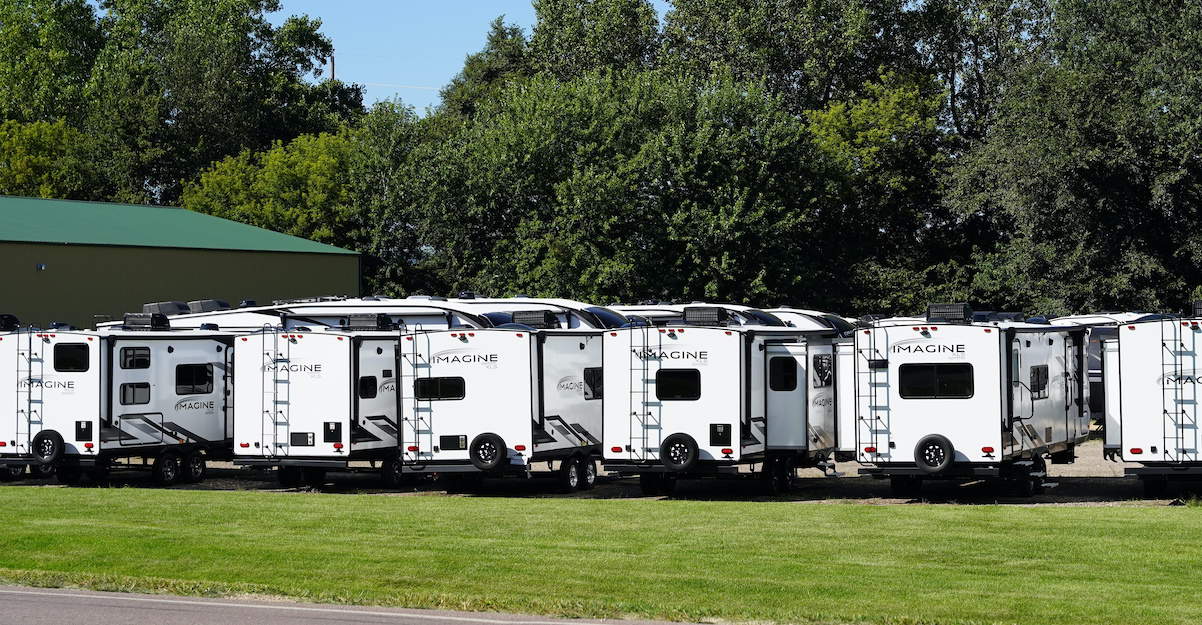The recreational vehicle (RV) is a symbol of freedom and adventure, offering a unique way to explore the great outdoors. However, when it comes to storing your beloved home-on-wheels during the off-season, many owners are left wondering: Is it okay to store your RV outside? This blog post will delve into the pros and cons of outdoor RV storage and offer some tips for protecting your investment.
Understanding Outdoor RV Storage
Outdoor storage is often the first choice for many RV owners due to its convenience and cost-effectiveness. However, before deciding on this option, it’s crucial to understand what outdoor RV storage entails.
Outdoor RV storage refers to keeping your vehicle parked in an open space without any protective covering or shelter. This could be in your driveway, backyard, or a dedicated outdoor storage facility. While this option may seem straightforward and budget-friendly, it does expose your vehicle to various elements that could potentially cause damage over time.
The Impact of Weather on Your RV
One of the most significant factors affecting outdoor RV storage is weather conditions. Exposure to harsh sunlight can cause fading and cracking on the exterior paintwork and interior furnishings of your RV. Rainwater can find its way into small cracks or openings, leading to potential water damage or mold growth. Snow accumulation can put undue stress on the roof of your vehicle while freezing temperatures can cause plumbing lines to freeze and burst.
Additionally, wind-blown debris during storms can scratch or dent your vehicle’s exterior. Therefore, if you choose outdoor storage for your RV, you must take these weather-related risks into account.
Mitigating Risks with Outdoor RV Storage
Despite these potential hazards associated with outdoor RV storage, there are several steps you can take to protect your vehicle:
1. Use an RV Cover: An excellent way to shield your vehicle from harmful UV rays and precipitation is by using a high-quality breathable cover designed specifically for an RV.
2. Regular Cleaning: Regularly washing and waxing your vehicle will not only keep it looking good but also protect against rust and corrosion.
3. Pest Control: Ensure all openings are sealed off properly when not in use as pests like rodents can cause significant damage.
4. Routine Checks: Regularly inspecting for leaks or damages will help catch any issues early before they become major problems.
Alternative Options for Safekeeping Your Investment
If you’re not comfortable with the risks associated with outdoor storage but still want easy access without breaking the bank, consider other alternatives such as covered or indoor storage facilities.
Covered facilities offer protection from direct sunlight and precipitation while still being cost-effective compared to fully enclosed indoor options. On the other hand, indoor facilities offer maximum protection from all elements but come at a higher price point.
In Closing
So is it okay to store your RV outside? The answer largely depends on where you live and how much effort you’re willing to put into maintaining and protecting your investment throughout its period of dormancy.
While outdoor storage may be more convenient and affordable upfront, it does expose your vehicle to various elements that could lead to long-term damage if not properly managed. However, with proper precautions like using an appropriate cover, regular cleaning & maintenance checks along with pest control measures; these risks can be significantly mitigated.
Remember that every decision regarding the care of an asset like an RV should be made considering both short-term convenience & long-term preservation value! If you’d like to learn more about Gold Corner Storage options, including boat storage options, contact us today! Happy adventuring!

